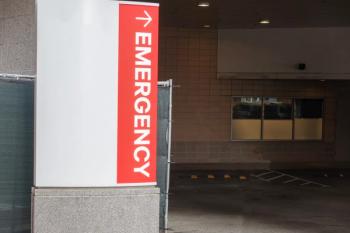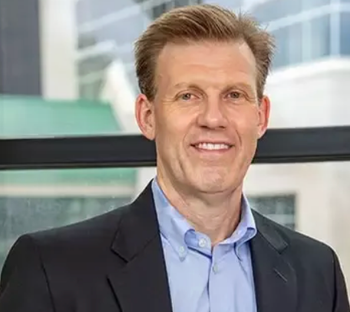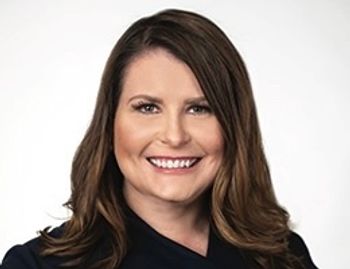
Providence CEO talks about financial recovery and getting ‘back to the core’
Erik Wexler talks about leading the Catholic health system, the struggle to get on solid financial footing, clashes with insurers, Medicaid cuts, and serving the most vulnerable.
Since becoming president and CEO of the Providence health system in January,
The Catholic health system, based in Renton, Washington, has faced financial pressures in recent years. Like many hospital systems, Providence is seeing more clashes with insurance companies over payments.
Hospitals and health systems also face
Wexler joined Providence nearly a decade ago, holding a number of leadership posts, including chief operating officer. Now, he’s leading the system with 51 hospitals and 1,000 clinics.
In an interview with Chief Healthcare Executive®, Wexler acknowledges the challenging landscape but also exudes optimism, even in his initial months as CEO. “It's feeling a lot less new, but a lot more exciting as we continue to transform and find our way to a new place, as we're being called to do,” Wexler says.
Wexler doesn’t downplay some of the tough decisions that lay ahead, including the impact of reduced support from Medicaid.
He’s bracing for more clashes with payers. He also says that Providence continues to look at which services are most essential, and which may have to be scaled back to use resources more effectively. He acknowledges that some decisions could mean cutting staff, though he says the aim is to preserve clinical positions.
But he says he’s encouraged by Providence’s work to “find our way back to the core.”
Amid seismic changes in health care, Wexler says he’s focused on an elemental question: “What should our organization be doing to serve those who are poor and vulnerable, and how do we do that in the best way possible, with care, compassion and great quality outcomes?”
(See part of our conversation in this video. The story continues below.)
Facing the ‘poly-crisis’
Providence has struggled financially in recent years, but Wexler is encouraged by the system’s progress.
When asked Providence’s turnaround plan, he says, “I think it's going really well.”
In the second quarter of 2025, Providence’s operating deficit was $21 million, marking an improvement of $102 million from the prior year.
“The third quarter is starting to shape up to be close to the same, if not the same,” he says. “So we believe the final three quarters of the year will position us well to come close to what we had planned for the year, and then position us as we launch into 2026.”
He describes the “poly-crisis” threatening health systems, including inflation, labor shortages, tariffs, and cuts to Medicaid.
“Providence, post-Covid has really struggled to get back to profitability, largely due to just the increase in the labor market and in supplies and equipment,” he says. “And we've also had major issues with getting the commercial payers to pay us on time and to reduce denials. And so all of those things, when they hit, they've really created a lot of difficulty getting back to what we where we need to be, which is break even.”
“We have been very, very structured, focused and disciplined,” he says.
Battles with insurers
Providence has battled with insurers over timely payments, and delays and denials in services.
“None of us go into a supermarket or a restaurant and buy food or leave the restaurant and then not pay for a year,” Wexler says. “And then, when we decide we're going to pay, decide we're going to pay less than what the bill was. We wouldn't get out of the restaurant.”
Providence is seeing more difficulty in getting payments from Medicare Advantage plans, he says.
“If you look at traditional Medicare reimbursement, and then you compare it to Medicare Advantage reimbursement, the federal government pays us on time,” Wexler says, adding that there are occasional adjudications or denials.
“But the denial rate and the slow pay for the commercial payers that are government contractors in this space is, frankly, horrific,” he says.
Wexler has discussed the problem with lawmakers, and he has also been speaking with leaders of insurance companies. He acknowledges that insurers need to be successful. “We need them,” he says.
As for the prospect of reduced friction with payers, Wexler says, “I'm cautiously optimistic with a couple payers, but I'm pessimistic about others who we have not seen any progress with. And so for those, we have no choice but to litigate.”
Impact of Medicaid cuts
Health systems and hospitals have warned that reduced funding for Medicaid will leave more patients without any kind of coverage.
Providence is going to take a hit from reduced funding for Medicaid, as the system ends up treating more uninsured patients, with fewer resources.
“We're looking at well over $1 billion of impact,” Wexler says.
Facing more financial pressures, Wexler talks about the need to reduce duplicative programs at Providence. He says that includes some decisions that will probably be painful, such as scaling back services in some areas if there are other providers nearby.
“We have to stop the duplication of programs where you might have a program five or 10 miles or even 15 miles away, a service that's doing a great job, quality, outcomes, they still have some capacity. And then another one, on the other side of the 15 miles that is only seeing some patients,” he says.
While Providence is looking to use resources more effectively, he says the system is aiming to be careful about shuttering services.
“What we have really explored as we're looking at the de-cannibalization is, how do we avoid creating a health desert? How do we make sure that within an acceptable, safe proximity, whether it's at a Providence Hospital or another one, it will exist? And if that doesn't exist, then we are less than likely to shut that program down,” he says.
Wexler acknowledges that such decisions aren’t easy, and the system needs to be thoughtful about scaling back services and potentially requiring some patients to travel further for care.
He says he’s being transparent with Providence’s clinicians and the system’s board.
“We are a mission-oriented organization,” Wexler says. “As I said, we serve those who are poor and vulnerable. And so we do this from a place of ethical discernment and looking at how we impact our communities, and our caregivers, and our physicians, and the health status of our communities.”
Reducing staff
Providence has reduced its reliance on staffing agencies, and the system has seen improvements in retention and its vacancy rate, Wexler says.
Still, the system has cut some jobs as it has shuttered programs. Most of those have not been in the clinical space, Wexler says.
And he has trimmed some executive positions.
“I've done a lot to reduce my top executive team,” Wexler says. “The ranks of our management team, as a whole, has been reduced so that we can keep people at the bedside.”
With looming reductions in Medicaid, Wexler says it’s possible more staff cuts will be coming.
“Do I see more? Unfortunately, I think we will, as we do, continue to de-cannibalize programs. What we know is we still have openings in the clinical space, so when we close those programs, we can redeploy those caregivers,” he says.
The changes in Medicaid programs will also affect many Americans, including those who don’t rely on the program, Wexler says.
While some of Providence’s transformation will be good, he says some elements will be painful and that cutting Medicaid “is not going to be better for health care in the United States.”
“On the other end of this, there will be tightened access,” Wexler says. “And so whether you're on Medicaid, or you're on Medicare in a commercial payer space, it may take longer to get an appointment or have a radiology exam.”






















































































